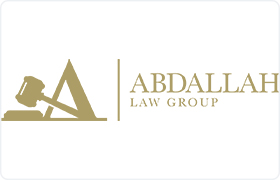 Armona Foreclosure Lawyers, California
Armona Foreclosure Lawyers, California
Sponsored Law Firm
-
 x
x

Click For More Info:
-
Abdallah Law Group, P.C.
555 Capitol Mall Suite 766 Sacramento, CA 95814» view mapReal Estate Law #1 Sacramento Law Office
Abdallah Law Group is ready to fight for our clients. We provide comprehensive, individualized and affordable legal representation.
800-698-5801
Not enough matches for Armona Foreclosure lawyer.
Below are all Armona Real Estate lawyers.
Lawyers
1-3 of 3 matches
Commercial Real Estate, Construction, Real Estate, Corporate
Business, Civil Rights, Environmental Law, Trusts, Real Estate
Real Estate, Federal Trial Practice, Federal, Personal Injury



 Mitchell Abdallah Sacramento, CA
Mitchell Abdallah Sacramento, CA